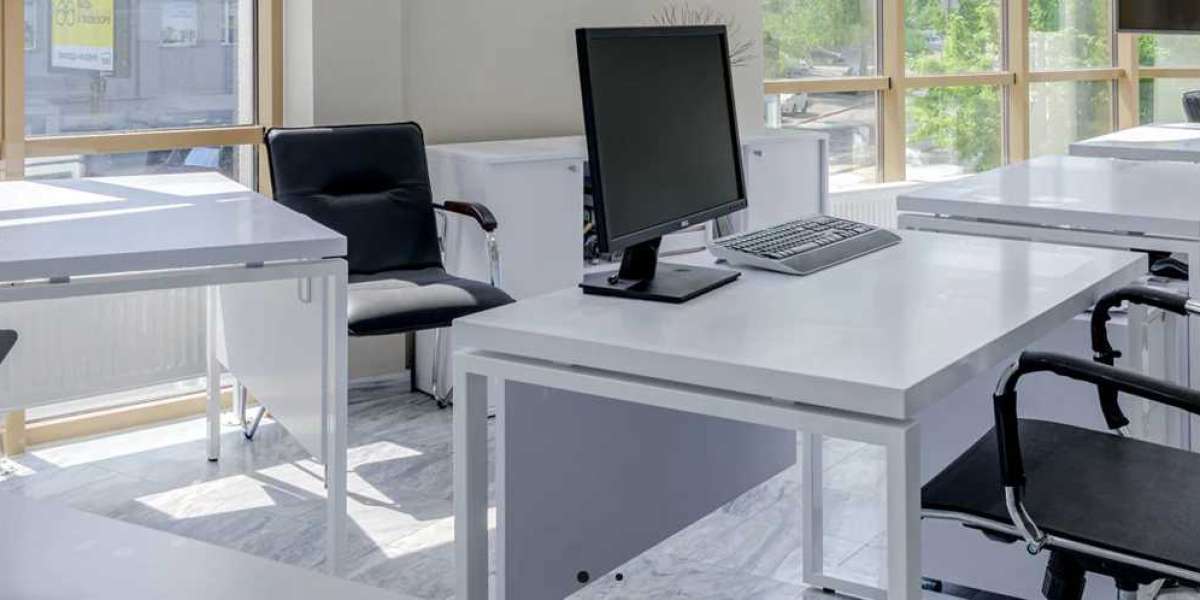Designing a small office space efficiently involves finding furniture solutions that maximize functionality while minimizing the footprint. Space-saving office furniture allows you to create a productive, comfortable, and organized environment even in the smallest areas. Here are some smart furniture solutions and tips to optimize your small office:
1. Opt for Multi-Functional Furniture
- Convertible Desks: Use desks that can transform into other pieces, like standing desks that convert into regular desks or wall-mounted desks that fold away when not in use.
- Storage Ottomans: Choose ottomans that double as storage units, providing seating while keeping office supplies or personal items hidden.
2. Maximize Vertical Space
- Wall-Mounted Shelves: Install shelves above desks to store books, files, and decorative items, freeing up valuable floor space.
- Tall Bookcases: Utilize tall bookcases to maximize storage capacity without occupying a large footprint.
3. Choose Compact and Mobile Pieces
- Nesting Tables: Use nesting tables that can be stored together when not in use and pulled out for additional workspace or meeting areas as needed.
- Rolling File Cabinets: Opt for file cabinets with wheels that can easily be moved around to different locations in the office.
4. Utilize Corner Spaces
- Corner Desks: Make use of often-overlooked corners with L-shaped or corner desks that offer ample workspace without encroaching on the central area.
- Corner Shelves: Add corner shelving units to increase storage without taking up wall space.
5. Incorporate Folding and Collapsible Furniture
- Folding Chairs and Tables: Use foldable chairs and tables that can be easily stored away when not in use, perfect for meeting rooms or flexible work areas.
- Drop-Leaf Tables: Choose tables with drop-leaf designs that expand for additional workspace and fold down to save space.
6. Create an Open and Airy Feel
- Glass and Lucite Furniture: Use transparent materials like glass or Lucite for desks and tables to create a sense of openness and make the space feel larger.
- Light Color Palette: Opt for furniture in light colors to reflect light and make the space feel more open and airy.
7. Implement Under-Desk Storage
- Under-Desk Drawers: Use compact drawer units that fit under the desk for storing office supplies and documents within easy reach.
- CPU Holders: Mount CPUs or other equipment under the desk to keep them off the floor and free up space.
8. Consider Modular and Custom Solutions
- Modular Furniture Systems: Invest in modular systems that can be customized and reconfigured as needed, allowing you to adapt to changing needs.
- Custom-Built Furniture: Consider having custom furniture built to fit specific dimensions and unique space requirements.
9. Use Flexible and Adaptable Layouts
- Reconfigurable Workstations: Design workstations that can be easily rearranged for different tasks or collaborative work sessions.
- Hot Desking: Implement a hot-desking policy where employees share desks, reducing the total amount of furniture needed.
10. Focus on Organization and Decluttering
- Cable Management Solutions: Use cable organizers and trays to keep cords and cables neatly tucked away and out of sight.
- Efficient Storage: Prioritize storage solutions that encourage decluttering, like labeled bins and baskets, to maintain a tidy and efficient workspace.
Conclusion
Optimizing a small office space requires thoughtful furniture choices that prioritize functionality and adaptability. By incorporating multi-functional, compact, and modular furniture, you can create a workspace that meets your needs without feeling cramped. Use these space-saving solutions to transform your small office into an efficient, organized, and inviting environment.








